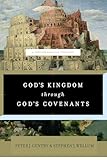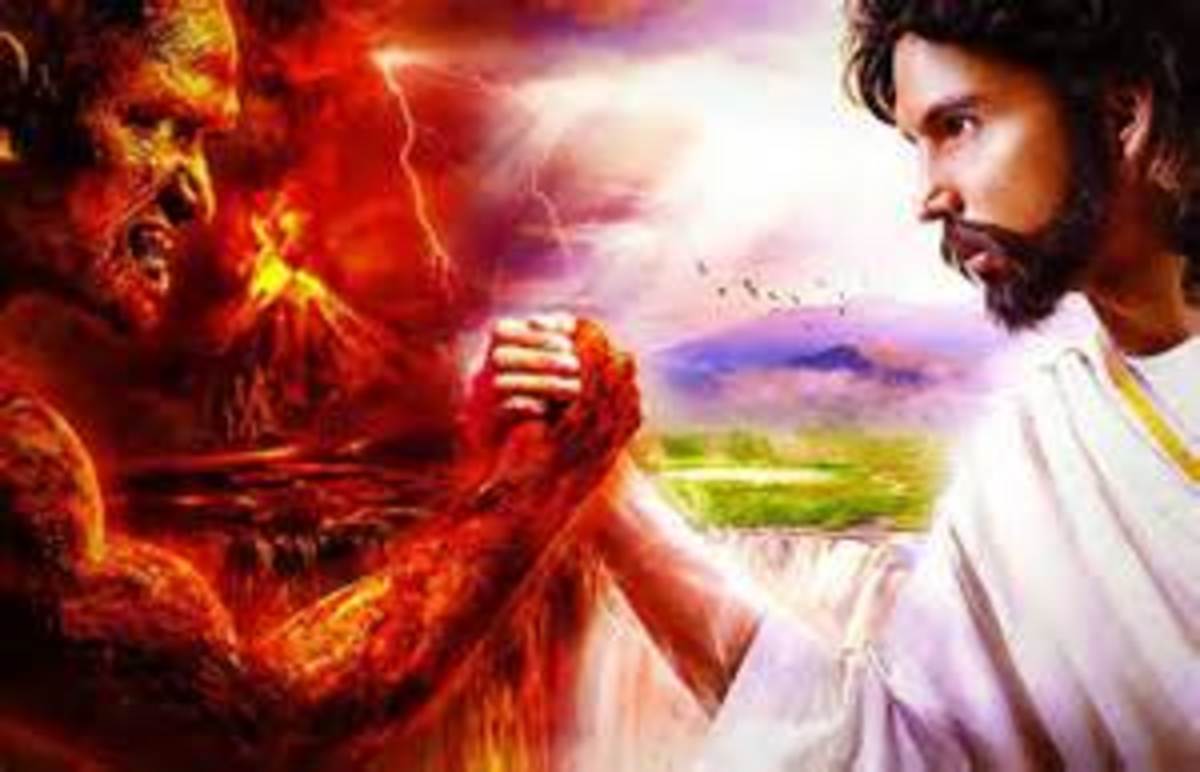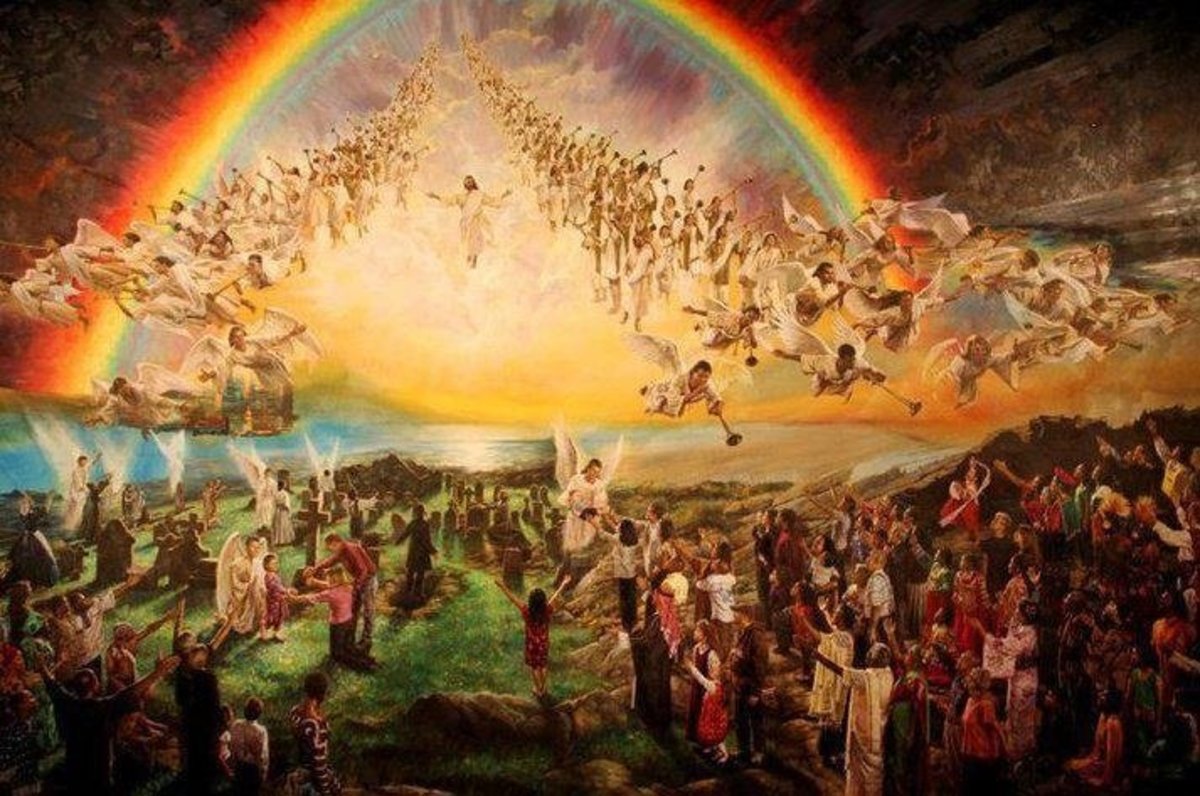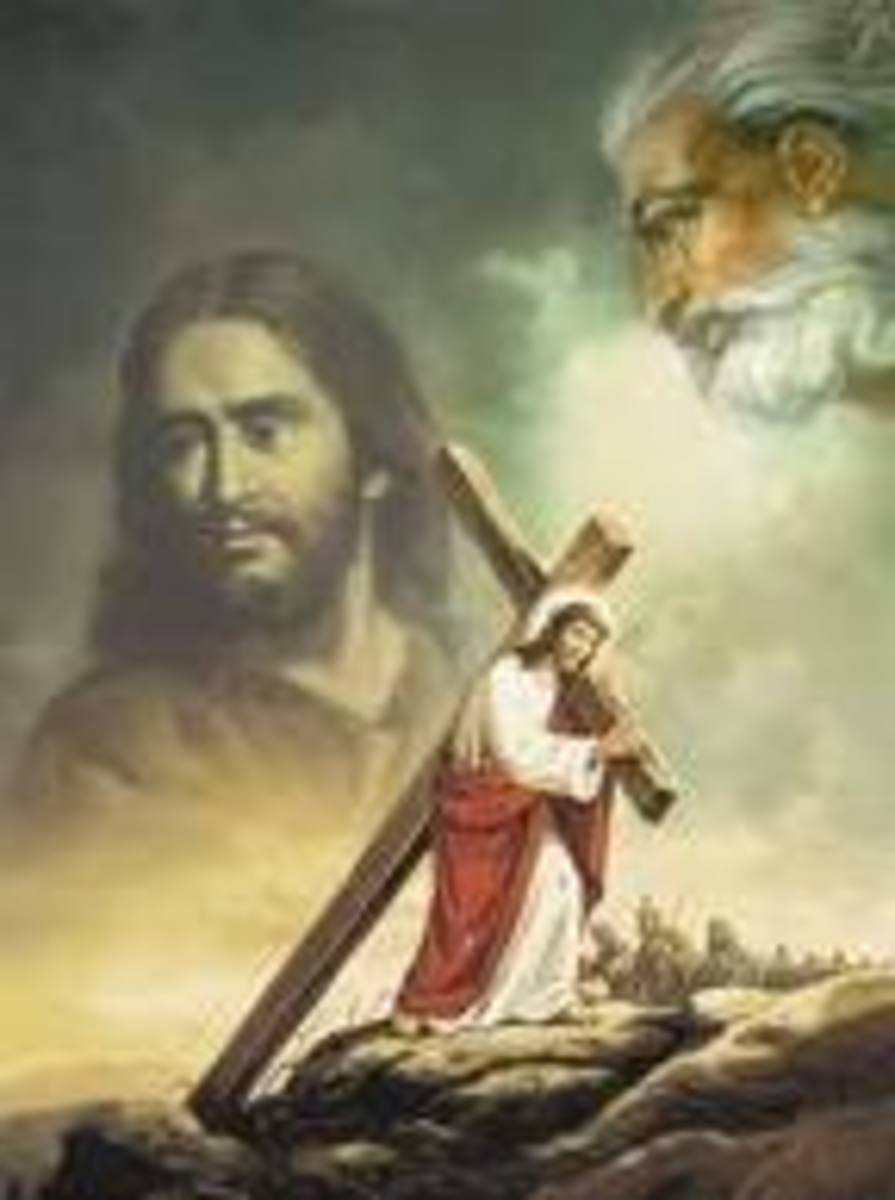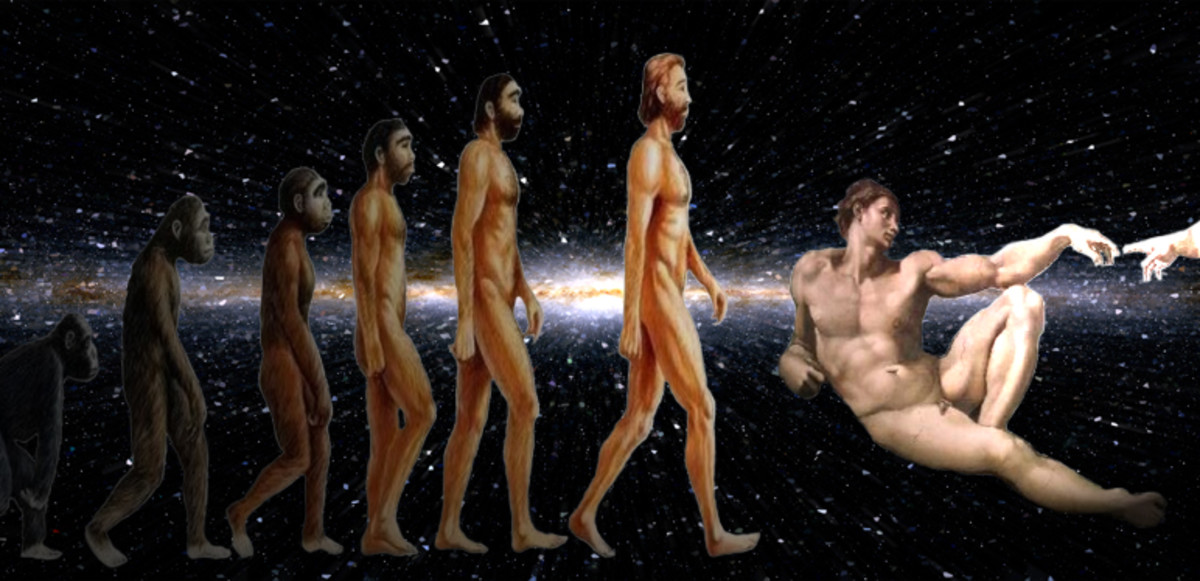The Covenant

The Evolution of the Covenant
I. Introduction
II. Defining the Covenant
A. The Hebrew definition
B. The Greek definition
C. Today’s definition
III. The Covenant of the Old Testament
A. The Original Covenant
1. God and Adam
2. God and Noah
3. God and Abraham
4. God and Moses
B. The Adaptive Covenant as explained by the Prophets
1. Samuel
2. Jeremiah
3. Ezekiel
IV. The Covenant of the New Testament
A. The Covenant as explained by the Apostle Paul
B. The Covenant of Jesus Christ as portrayed in the Gospels
1. Synoptic Gospels
2. Gospel of John
C. The covenant of today’s interpretation
1. Judaic Views
2. Christianity’s View
V. Conclusion
For many, religious beliefs hold to an eternal life that was promised to mankind by God. This promise, also known as a covenant, is more of a binding contract between God and man. God promised to guide, protect and grant prosperity on mankind, in return for worship and following God’s law. The first major covenant made was with the Chosen or Hebrew (Israelite) people. However, this was not the first covenant, nor would it be the last. As we will see, this covenant between God and man is an ever evolving contract as men break the covenant and God has to establish a new covenant with those faithful followers who remain. We will see this covenant extend from the “Chosen” people, to also include the gentiles of all nations.
First, let us start with defining what this word “Covenant” means. What meaning it held within the Hebrew language and Old Testament, the Greek language and the New Testament, and finally what it means in the English language and today’s church.
The Hebrew word for covenant is berit, with the two most common derivations coming from Akkadian, birit (between, among) and Akkadian, biritu (clasp, fetter). Also we see in the Akkadian (language of Babylon and Assyria), the terms mamitu and adu, which have been identified as pertinent when discussing the term “covenant”. The term mamitu, refers to an oath or sworn agreement and adu, refers to a formal agreement (most likely overlaps the Old Testament concept of covenant). In the Old Testament the term berit has various referential uses to include, international treaties, clan alliances, personal agreements, legal contracts and loyalty agreements (including marriage agreements). (Walton)
The Greek word for covenant is diatheke (a disposition, i.e. (specially) a contract (especially a devisory will) -- covenant, testament.), derived from the word diatithémi (meaning: "to place, arrange") – properly, thoroughly (carefully) arrange which effectively accomplishes the objective at hand (Strong)). While the Hebrew and Greek definitions are similar in meaning, the Greek holds to more of what we would define this concept today, as we will see in the English definition.
The Merriam-Websters dictionary defines the term covenant as: a usually formal, solemn, and binding agreement or a written agreement or promise usually under seal between two or more parties especially for the performance of some action.
So what we find, in defining the term covenant, is a legal binding contract between two parties. It is not, however, necessarily an equal responsibility agreement between the parties.
The very first covenant we see between God and man is with Adam and Eve in the Garden of Eden. Adam and Eve are given dominion over all animals, freedom from pain and death and all the plants for food. And in return for all of this was the simple requirement of not eating from the tree of knowledge. Of course as we all know, this requirement was not obeyed and thus began the fall of man. As a result of this down fall, there was an extreme sinfulness of mankind, causing God to regret his creation and ultimately his decision to destroy the earth, which takes us into our next covenant between God and man.
God was only able to find one man who was righteous and worthy of salvation from the destruction of the world. And this man was Noah. God sent an angel to Noah, who instructed him to build an Ark, for there was a coming flood which would destroy the world and cleanse it of the evil that was rampart throughout the world. As part of these instructions, Noah was to take two of each kind of animal and his family onboard to survive the flood and to replenish the earth once the flood receded. After the flood was over and the waters receded, Noah built an altar and offered a sacrifice to God. God, in turn, promised to never again destroy the world by flood and as a symbol of this covenant, he put a rainbow in the sky as a sign of his promise which we still see to this day.
Our next major covenant is between God and Abraham. This covenant is where we see the beginnings of the Judaic Religion. One of the most powerful rituals in the ancient Hebrew culture was that of the blood covenant. This binding agreement combined elements of friendship, loyalty and sacrifice. And when God made the blood covenant with Abraham, our relationship with God was irrevocably altered. As a test of faith, God instructed Abraham to take his son Isaac to the mountains of Moriah and sacrifice him. Abraham did as he was instructed, but God stepped in and stopped him and presented him with a ram to sacrifice instead. This complete faith in God, lead to Abraham’s covenant with God. God tells Abraham that because of his faith, he would be blessed above all other men. Abraham’s would be the father of many nations and he would be giving the land of Canaan. As part of this covenant, Abraham was instructed to circumcise himself, as well all males of his family as a mark of their being chosen by God. This circumcision included all male members of his family, both by birth and those bought or own by his family. Abraham was ninety-nine year old when he was circumcised. By this obedience, God made Abraham the father of the Hebrew nation. This covenant is renewed by God with Isaac and with Jacob (Israel) and remains until the exodus of the Hebrew people from their bondage in Egypt.
This brings us to the most commonly known covenant, the Mosaic covenant. This covenant is made between God and the Hebrew people through Moses. Of the covenants mentioned or alluded to in the bible, this is by far the most in-depth descriptive covenant. Not only does God describe in detail his offer, but he explains in-depth the laws required to be fulfilled by the Israelites to meet the requirements of the covenant being offered by God. The Old Testament covers this covenant from various schools of thought in the first five books of the bible, minus Genesis. In the Book of Exodus, we see the comprehensive insight into the laws as given to Moses for the Hebrew people. Following Jewish customs we see six hundred and thirteen laws (mitzvot) that are required to be followed by the Israelites, the most famous of these, the Ten Commandments that the majority of us grew up learning in Sunday school. Within this covenant, we also find instructions for the building of the Temple, the Ark of the Covenant, procedures for conducting religious rituals and sacrifices, times for the celebrations of feast and the priestly requirements. From the time of the exodus to the eventual settling into the Promised Land, the Hebrew people fluctuated between obediently following this covenant and at other times complaining and turning against both Moses and God. Moses, on multiple occasions, had to beseech God on behalf on the Hebrew people to prevent their demise. Even still, God’s punishment was to not allow anyone of the troublesome generation to enter into the Promised Land. They even drove Moses to the point of disobedience himself, which prevented his entrance as well. Ultimately, Joshua led the Israelite people into the Promised Land, thus fulfilling the covenant. The Hebrew people continued to follow God and the covenant between them for a time, but fell prey to the pressures of the pagan nations around them and without God’s support were conquered by neighboring nations. And this is when we begin to see, through the prophets, the evolution of the original covenant to fit with the new situation that the Hebrew people now find themselves in with the Palestines, Persians and Babylonian exiles.
In the book of Samuel, we see the priests leading the people in sinful ways once again, failing to follow the covenant made with God. In battle with the Palestines, the Israelites are defeated and the Ark of the Covenant is taken. This causes much sorrow among the Israelites, as they fear God has completely forsaken them. And with the death of Eli, we see the rise of the Prophet Samuel, Israel’s first Judge. But, God had not completely forsaken his people. Everywhere the Ark of the Covenant was taken, God laid a heavy hand on the people and they feared death and begged for the Ark to be returned from where it came from. Under the leadership of Samuel and his devotion to God and intercession on behalf of the Hebrew people, see the Israelites free of Palestine troubles. But, as before, after a time the people began to complain once again. This time seeking a Godly King who would lead them, instead of the Prophets and Judges.
The Book of Jeremiah finds us once again with Israel forsaking God and his covenant under the reign of King Josiah. God tells Jeremiah of Israel’s and her sister Judah adulteries. He gives Israel a certificate of divorce and sends her away. But yet once again, God has mercy and says that he will take them back. But this time, there is a clause. Jeremiah 31:33-34 says: “This is the covenant I will make with the house of Israel after that time,” declares the Lord. “I will put my law in their minds and write it on their hearts. I will be their God, and they will be my people. No longer will a man teach his neighbor, or a man his brother, saying, ‘Know the Lord,’ because they will all know me, from the least of them to the greatest,” declares the Lord. “For I will forgive their wickedness and will remember their sins no more.” (Zondervan (Biblica Inc)). And with this statement we see the first implications of what is to come with the covenant that is to be offered to the gentile people.
With the Book of Ezekiel, Israel is in a state of complete perversion, the sacrifice of children to idols, adultery, prostitution, false prophets and a multitude of other Godless actions. And what is God’s punishment for falling from his covenant? The Israelites are conquered and exiled by Babylon. The prophet Ezekiel does tell of God’s promise to return his people to the Promised Land, but there would be changes required of the people. God would change their hearts from stone to flesh and the people would then need to follow God’s laws and would once again be his people.
Throughout the prophets, we see variations to the covenant between God and the Hebrew people. The laws never change, but how God is to assist with helping the people to follow those laws does change. Each prophet seems to update God’s assistance regarding the covenant to deal with the problems of the day. This on and off again relationship between God and the Hebrew people continue up to and including the time of Jesus.
The New Testament brings with it a new outlook into the covenant between God and man. No longer is this covenant just for the chosen people (Hebrews), but now even the Gentile is included into God’s divine plan. And where would be the best place to start this discussion, I think the Apostle Paul would be the best place to set the foundation of the New Covenant.
From the Pauline letters to the churches of Asia Minor and surrounding areas, we see a completely different view of the covenant. Paul’s message is directed at the Gentiles and he preaches of a covenant free of the Old Testament standards we are accustom to up to this point. His revelation from the risen Christ is that the Gentile race is free from the Law of the Hebrews. Circumcision is no longer required to be counted as part of God’s chosen. Neither are the strict food regulations of the Jewish people. He preaches of salvation through faith not the actions of the law. While he maintains, that the law is useful for pointing out sins, following the law does not foster a place within God’s kingdom. And with this new message of faith in and of the risen Christ, we have the beginnings of the new covenant between God and all of mankind, not just the chosen of Israel. Paul is the first of the Christian writers to describe the last supper of Christ, from which we have the implementation of the new covenant through Jesus Christ. He does differ from the Gospel writers, as they do not remove the requirements of the Old Law in describing the new covenant according to Jesus Christ.
With the Gospels of the New Testament, we are introduced to the new covenant as proclaimed by Jesus Christ as reported by his apostles. The first three gospels have a similar view of the covenant and how it came to exist, with John holding a slightly different take of the complete process.
The synoptic gospels portray Jesus as a more divinely inspired prophet in the beginnings of their writings with the culmination of his Godhood occurring upon his resurrection. These first three Gospels all have Jesus saying at the Last Supper words to the effect of: “drink, for this is the blood of my covenant”. Jesus is also noted as saying that he came not to abolish the law, but to fulfill the law. Jesus promised as part of this covenant, that he would send a comforter, the Holy Spirit, which would be a guide in his absents until his return. Even though Jesus established a New Covenant with man’s salvation through him, instead of animal sacrifice, he did not remove the requirements of following the Old Testament laws. Jesus was the ultimate sacrifice for all sins; forming a new covenant between God and mankind, with Jesus as the mediator that man would now be able to go through to receive entrance into the kingdom of heaven. Any man having faith and believing in Jesus Christ as the son of God is now able to enter into this new covenant with God and receive eternal life.
While John’s gospel maintains the covenant message of the synoptic gospels, John portrays Jesus as the Divine or God from the very onset of his writings. With the birth of Jesus, he implies that the Kingdom of God and the new covenant are implemented and available for all of mankind. And with the belief that Jesus is God and of God, man can enter into the new covenant.
Today’s views concerning the covenant vary somewhat depending on the religious beliefs you hold. Those who follow Jewish traditions hold one belief, while those who follow Christian beliefs hold another.
The majority of the Orthodox Jewish still maintain the Covenant of the Old Testament. They do not recognize Jesus as the messiah and therefore do not hold that a new covenant has been made between God and man. They continue to follow strict dietary laws and circumcision and other laws listed in the Torah. Some however, are more lax in the following of the laws. There are even some who hold Jesus as the prophesied Messiah.
Today’s Christian however, does hold to the new covenant as described by the New Testament. Most follow Paul’s teaching of being saved by grace and the following of the Old Testament laws is no longer required. Although some laws are observed like “suffer not a sorceress to live” or “a man should not lie with a man as a woman”, but others like “if a man divorces his wife, he causes her to commit adultery” and “any man who marries a divorced woman causes them both to commit adultery” are seemingly justified by the “Church”. Others hold more to the teachings of the gospels and believe that the old laws are still required, with the exception of sacrifice, as Jesus supplied the ultimate sacrifice for all sins.
From the beginning of time, God has offered man a covenant. For his guidance and protection, he requires nothing more than worship and obedience to his laws. Man has been and probably always will be stubborn and selfish and continue to fall from following the covenant of Gods graciousness. When things are going well, we tend to forget the hard times when we relied on God to save us from our hardships, and we drift from God’s goodness. But in each case, God has always allowed us to return and even modified his covenants with man to meet the current needs and wants. With each new modification, God has made it easier and easier for man to follow his covenants, while still maintaining his original bargain that he made with Abraham, Isaac, Jacob and Moses.
Bibliography
Arthur, Kay. Our Covenant God: Living in the Security of His Unfailing Love. Random House Digital, Inc., 2009.
Battelstein, Baruch. Covenant: God's Plan for Israel in the Last Days. Destiny Image Publishers, 2005.
Garlow, James L. The Covenant: A bible study. Kansas City: Beacon Hill Press, 1999.
Strong, James. The New Strong's Expanded Dictionary of Bible Words. Thomas Nelson, 2001.
Walton, John H. Covenant: God's Purpose, God's Plan. Zondervan, 2010.
Zondervan (Biblica Inc). THE HOLY BIBLE, NEW INTERNATIONAL VERSION, NIV. Grand Rapids, MI : BIBLICA, INC, 1973, 1978, 1984, 2011.

